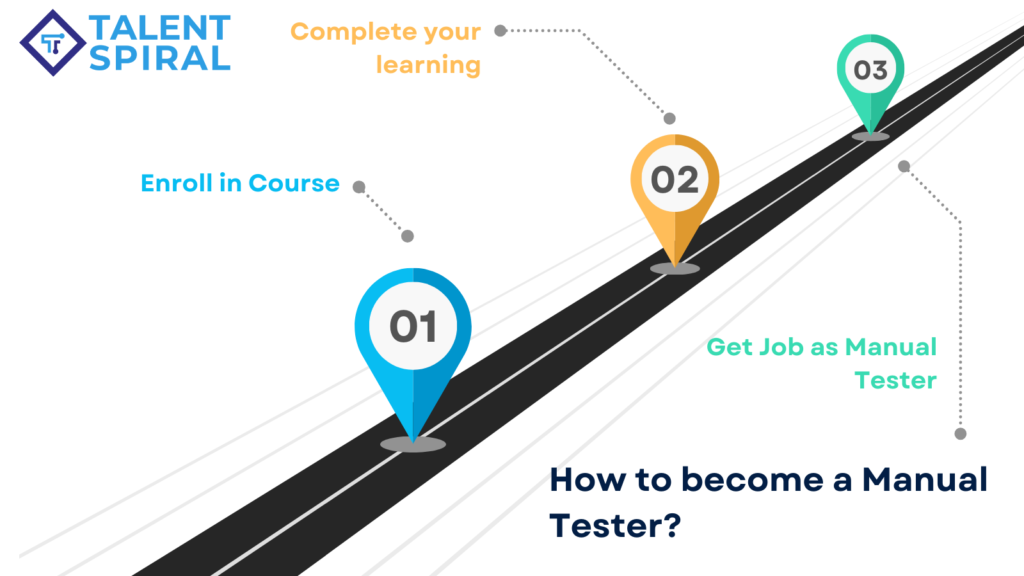
In today’s increasingly technology-driven society, our lives are becoming more centered around websites and mobile apps, reflecting a preference for accomplishing tasks on the go. To facilitate this, individuals seek well-designed apps and site interfaces with user-friendly navigation.
Ensuring a positive user experience falls on the shoulders of testers, who execute various test cases, report identified bugs, and address issues for improvement. This demand for quality assurance has elevated the importance of software testers, making a career in manual testing highly promising.
Embarking on a successful journey in manual testing requires a grasp of the fundamentals. Manual testing involves the manual examination of applications to identify defects or bugs, with testers adopting an end-user perspective. This process spans different testing stages, including unit testing, integration testing, system testing, and user acceptance testing.
To thrive as a manual tester, certain skills are essential:
- Knowledge and hands-on experience of Software Testing Concepts: Understanding the software testing life cycle and its phases, such as requirement analysis, test planning, test case development, test environment setup, test execution, and test closure, lays the foundation for a successful testing career.
- Basic knowledge of Database/SQL: Proficiency in verifying and validating data stored in backend databases using SQL queries is crucial, given the substantial data behind software applications.
- Basic knowledge of Linux commands: Familiarity with basic Linux commands is vital, as many software applications are deployed on Linux machines.
- Knowledge and hands-on experience of a Test Management Tool: Competence in utilizing test management tools like JIRA with Zephyr or other alternatives is essential for effective test case tracking.
- Knowledge and hands-on experience of any Defect Tracking tool: Understanding the defect tracking process and using tools like JIRA or QC is critical for systematically managing and resolving defects in the software testing life cycle.
In conclusion, a career as a manual tester offers promising prospects, especially for those entering the IT industry. Acquiring skills in software testing concepts, database/SQL, Linux commands, test management tools, and defect tracking tools is vital for success in this field. For those seeking training opportunities, resources such as QA Online Training provide avenues to enhance skills and knowledge in manual testing. Happy learning! 😊


